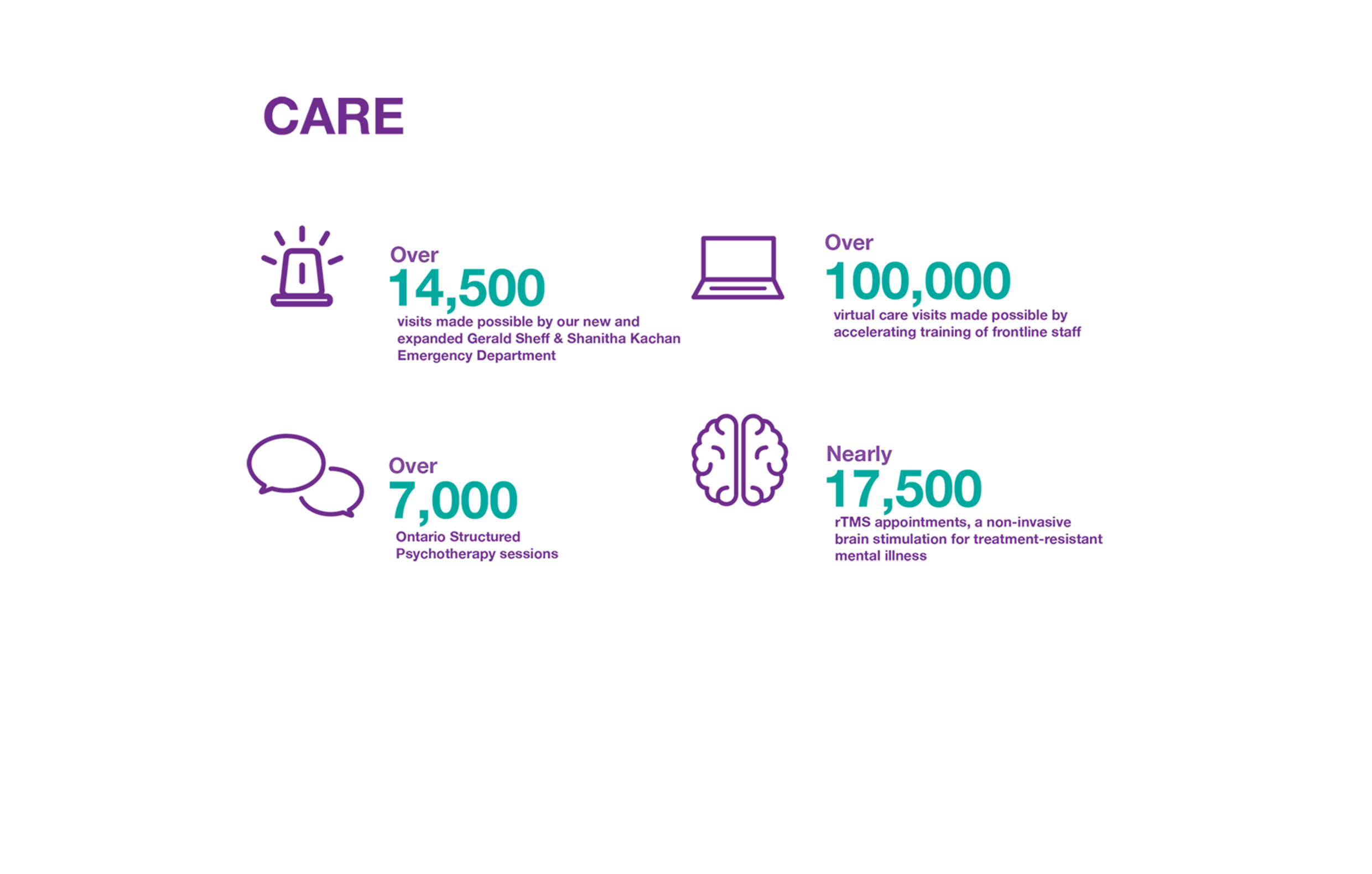Pictured above: CAMH staff celebrate administering a significant milestone of 20,000 COVID-19 vaccine doses. CAMH is proud to have contributed to the health and safety of our local community through the provision of COVID-19 vaccines at our onsite clinics.

Annual Report 2021-2022
A look back at a year of saving lives together through research, care, education and advocacy
- Annual Report 2021-2022
- Home
- Driving Change
- About CAMH
- Performance & Accountability
- Annual Report to the Community
- Annual Report 2021-2022
CAMH is saving lives today

CAMH by the numbers
Mental health research is saving lives today

276
89%
Pharmacogenetic testing shows promise improving symptoms for treatment-resistant depression


Virtual care and digital health innovation are saving lives today
270+
80%
Virtual trans health care

CAMH's system leadership is saving lives today



Health equity is saving lives today



The mental health movement is saving lives today
$2.62
38%
Fundraising with impact and transparency







